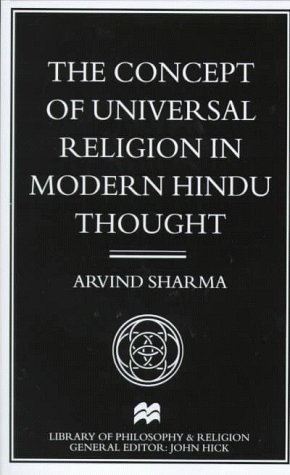Library of Philosophy and Religion
2 total works
This presentation of Hinduism particularly stresses the intermingling of philosophy and religion within the faith. It hopes to broaden the horizons of the conventional philosophy of religion by adding material drawn from Hindu thought to its scope of interest. By thus juxtaposing the philosophy of religion with Hindu philosophy, the book attempts to move towards a cross-cultural philosophy of religion. This series of books explores contemporary religious understandings of humanity and the universe. It covers the continuing dialogues between religion and philosophy, scepticism and faith and between the different religions and ideologies.
Hindu thought has undergone a major reconfiguration in the 19th and the 20th centuries, in response to its encounter with the forces of modernity. A key element in this reconfiguration is the perception of Hinduism itself as a universal religion or, as a catalyst promoting the emergence of a universal religion, or, at the very least, as promoting religious universalism. This book examines the views of several major Hindu thinkers of this period, Swami Vivekananda and Mahatma Gandhi prominent among them, on this theme of modern Hinduism. This work is intended for use by Departments of philosophy and religion.

